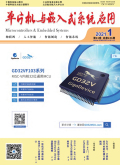集成电路与嵌入式系统2024,Vol.24Issue(6):1-8,8.
面向投票类AI分类器的零冗余存储器容错设计
Redundancy-free error-tolerant memory design for voting-based AI classifiers
摘要
Abstract
Voting-based classifiers are widely used in many Artificial Intelligence(AI)applications.In their implementation,memories that store all known data are prone to suffer different effects like radiation and physical variations,causing soft errors and can even change the classification results.Therefore,error-tolerance must be achieved in these memories for safety-critical applications.Existing error-tolerant techniques commonly utilize error correction codes,however,the memory redundancy they introduce further increases the burden of storage.In this paper,a redundancy-free technique is proposed by focusing on the impact of errors on the classification perform-ance,instead of the error itself.It can recover the error-free classification results under errors by exploiting the flipped data.A k nearest neighbor classifier is taken as a case study to evaluate the proposed technique.The simulation results show that the proposed scheme of-fers almost full error tolerance without incurring any memory redundancy,moreover,it significantly reduces the hardware overheads for protection circuits compared to existing techniques.关键词
存储器/软错误/人工智能/分类器/错误纠正码/k邻近算法Key words
memory/soft errors/artificial intelligence/classifiers/error correction codes/k nearest neighbors分类
信息技术与安全科学引用本文复制引用
柳姗姗,金辉,刘思佳,王天琦,周彬,马瑶,王碧,常亮,周军..面向投票类AI分类器的零冗余存储器容错设计[J].集成电路与嵌入式系统,2024,24(6):1-8,8.基金项目
国家自然科学基金(12075069,61771167,11775061,11805045) (12075069,61771167,11775061,11805045)
四川省基金重点项目(2019YFSY0028) (2019YFSY0028)
强脉冲辐射环境模拟与效应国家重点实验室项目(SKLIPR1912,SKPLIPR2015). (SKLIPR1912,SKPLIPR2015)

